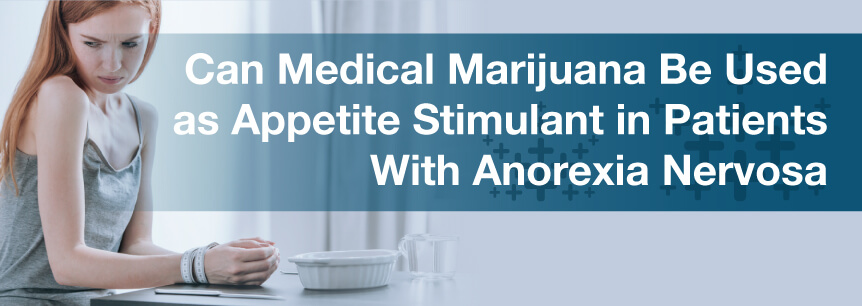
Anorexia is an eating disorder that results in a substantial decrease in appetite. Patients who have anorexia due to psychological problems can develop a reduced appetite or induce it on purpose. When a patient gets anorexia from a medical treatment or condition, a low appetite makes it difficult to eat a sufficient diet. No matter the nature of your anorexia, stimulating your appetite can make recovery easier.
Some patients with anorexia use appetite-stimulating medication that can come with adverse side effects. To avoid these drawbacks, many are starting to use medicinal cannabis instead.
Cannabis is well-known for making you feel hungry — both marijuana users and non-users alike often joke about “the munchies.” But, have you ever thought about why it gives you food cravings? There’s more science at work when you use cannabis than you might think.
Marijuana activates receptors in your cells that send messages to your body. Using medical marijuana lets your cells communicate signals to:
Relieving appetite issues for a patient with an eating disorder can be more difficult than treating somebody with loss of appetite as a side effect. Patients who have a reduced appetite for medical reasons want to eat — they simply can’t. Meanwhile, eating disorder patients often struggle with a distorted body image and a negative relationship with food. In recovery, they must unlearn their unhealthy attitudes about eating and weight.
Medical marijuana can address the emotional aspects of anorexia, as well. In addition to stimulating the appetite, cannabis medicine can relieve mood symptoms like anxiety and depression, which typically appear as a cause or result of eating disorders. While it often takes several approaches to resolve anorexia’s psychological impact, medicinal cannabis can take part.
Appetite loss caused by conditions and treatments doesn’t usually have emotional side effects. But, it can still have complications we need to consider. Sometimes, a reduced appetite appears as its own symptom, but it can also stem from other symptoms or side effects like nausea, fatigue or depression. These health issues make it more difficult to eat and prepare food.
To increase a patient’s desire to eat, sometimes it takes treating the underlying cause. Medical marijuana can relieve many symptoms that interfere with making and consuming food. The sativa strain of the marijuana plant provides energy to people who don’t have enough motivation to cook. It also treats depression symptoms that take away your appetite and motivation. When nausea gets in the way of eating, cannabis medicine can soothe the stomach, as well.
If your state has legalized medical marijuana for anorexia, you could qualify for a recommendation. Laws and procedures vary from state to state, but registration always involves visiting a cannabis-friendly physician for an evaluation. You can then stay in contact with your doctor to manage your treatment plan. Once you’ve been approved, you can buy your medicine from a cannabis dispensary in your area.